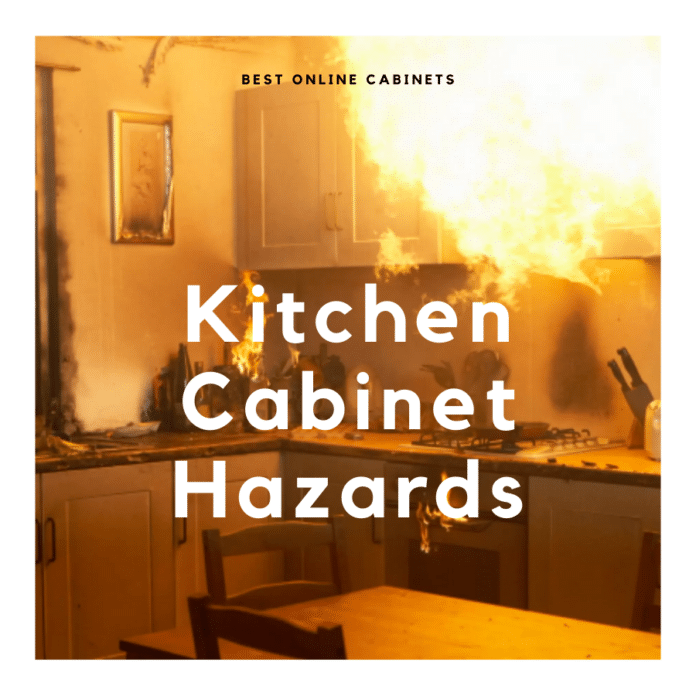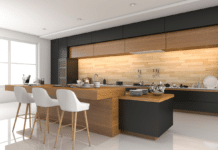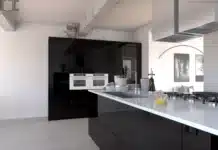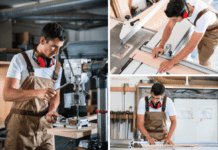Kitchen cabinets are designed to last, but hazards and threats are inevitable. There is no perfect way to future-proof your kitchen cabinets, but you can try preventing harm.
Best Tips How To Prevent Kitchen Cabinet Hazards and Threats
The first step is to know where you live and the uncontrollable forces around you that can damage your property. Here are pro tips on preventing kitchen cabinet hazards and threats so they last a long time.
Termites are Living Kitchen Cabinet Hazards
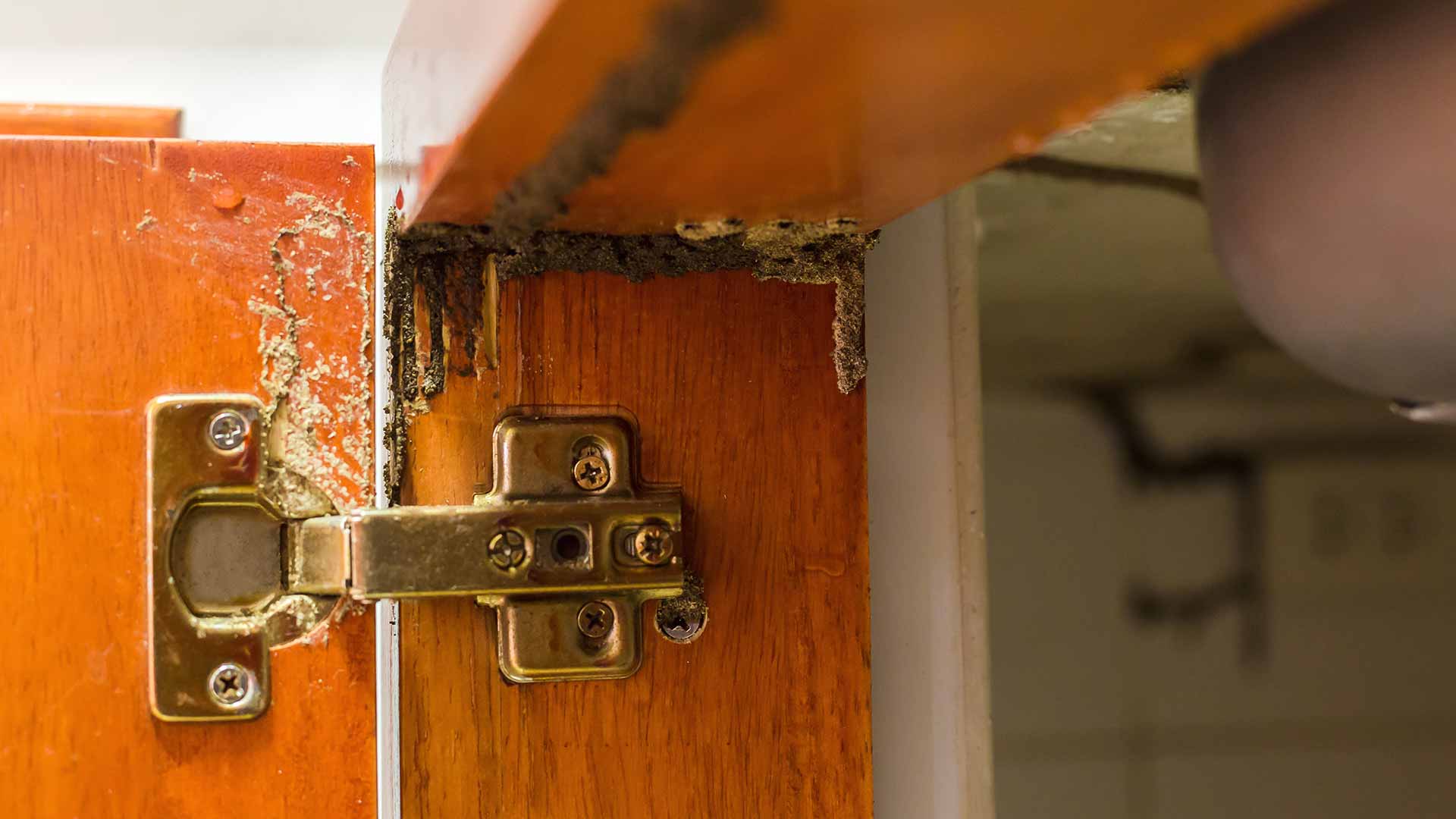
Nothing is more painful than knowing that termites have eaten through your wooden cabinets.
These pesky insects can damage your kitchen and precious belongings, from weakening the structural integrity of the panels to eating a hole right through the cabinet itself.
Termites invade slowly as a colony, settle in, and over time will completely remove the strength of wood. They will make the wood so brittle that it snaps easily in half.
Can one simply purchase insecticide to kill them off? This can be a temporary band-aid situation, but it is not long-term.
A professional exterminator should be called in to remove the colony. Foam and dust agents and termite-preventing chemicals can also be applied.
These measures can prevent termites from returning and causing further damage. Earlier signs of termites can mean stopping them earlier before a colony forms.
Flooding or Water Damage
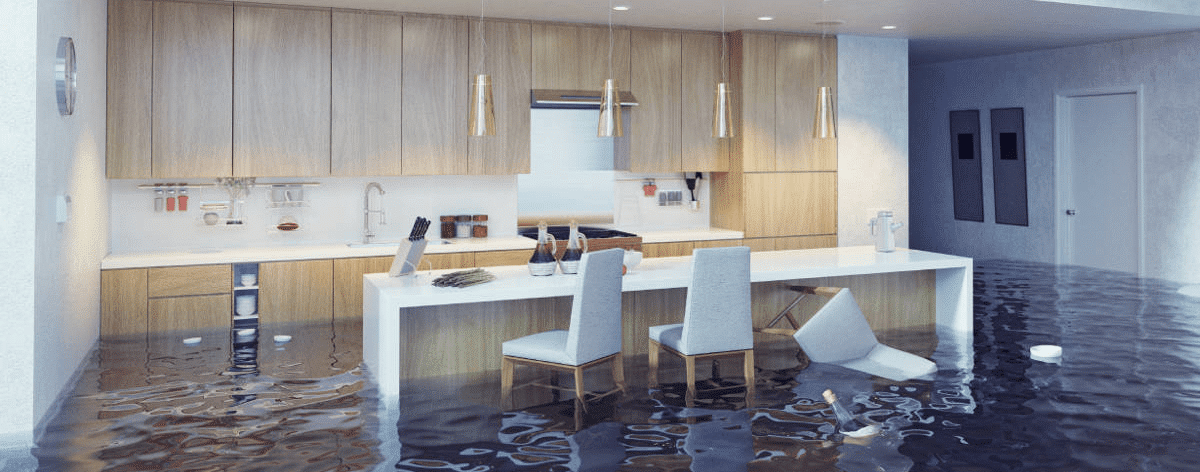
Water damage is the most common reason for replacing cabinets.
Water that floods the cabinets can rot, weaken, and deteriorate the strength of the wood. Not only will the mold be visible, but it will also leave an unpleasant odor.
Some cabinets may have MDF for the door fronts or water-resistant paint to prevent minor water damage.
However, the insides of cabinets are typically MDF (Medium-Density Fiberboard). This material is built to be sturdy but not resistant to damage.
Water damage is typically caused by either leaking pipes or natural flooding. It is advised to check frequently for leaking pipes and ensure no water damages your cabinets.
Flooding from excess rainfall or rising water levels is difficult to avoid and prevent. Certain companies may adopt new technology to prevent water damage.
If one lives in an area where flooding occurs often, checking for this option is highly recommended.
Fires
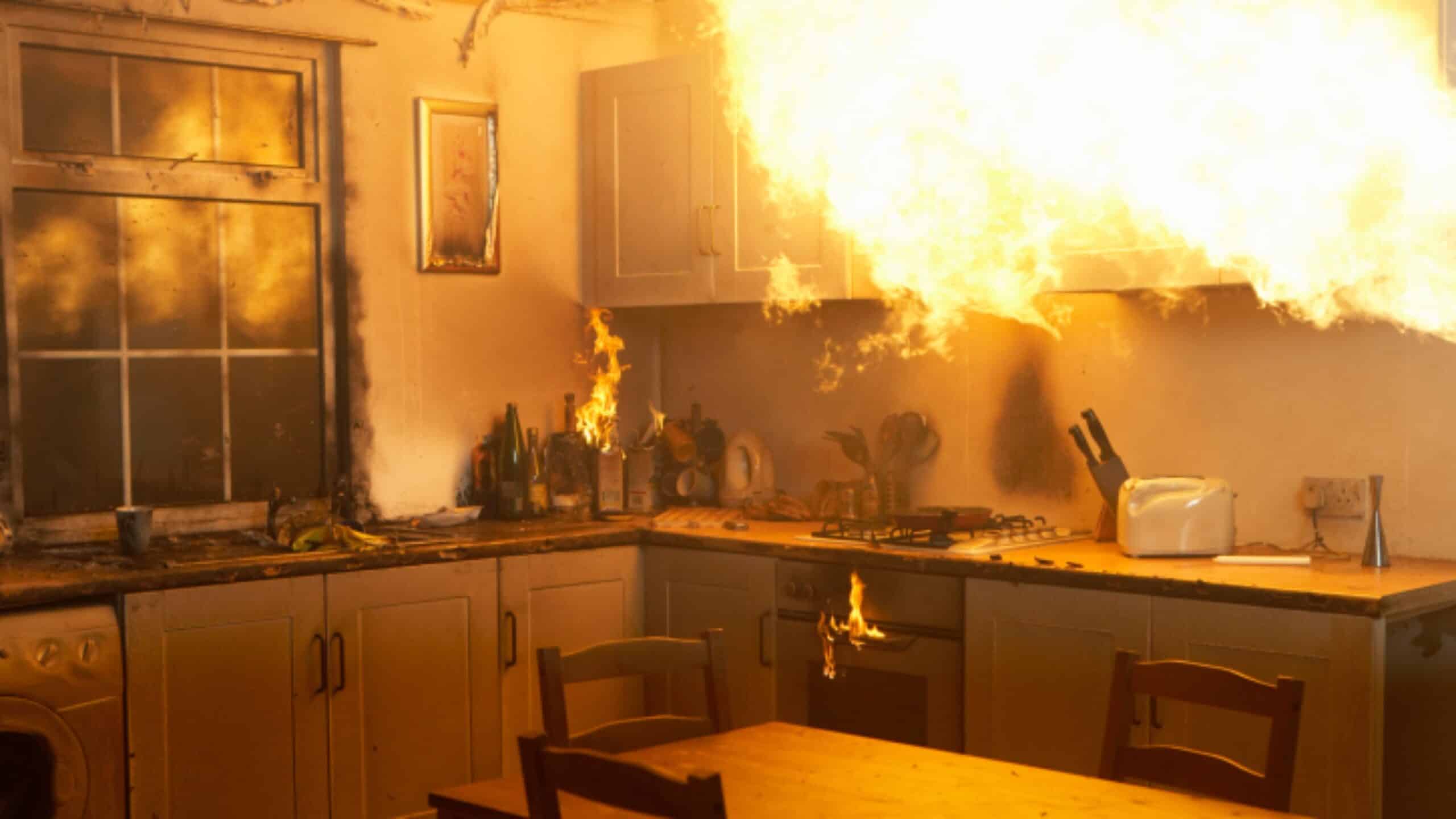
Fire is one of the most destructive and unpredictable kitchen cabinet hazards. As the most destructive element, fires will not leave anything behind if uncontrolled.
This applies especially to wood cabinets. Similar to firewood being fuel for campfires, wooden furniture and cabinets act as food for a growing fire.
If a fire breaks out, it is always the top priority to value one’s safety and put out the fire before spreading.
There are many possible causes of fires. Homes in extremely hot weather climates, gas leaks, or even a cooking accident can start a fire.
Although many people don’t even own one, having a fire extinguisher in the house is extremely important.
At times, simple water may not be enough to fully extinguish the flames in one go. Storing the fire extinguisher with cleaning supplies will be accessible for most people and potentially save one’s household.
Earthquakes and Natural Disasters
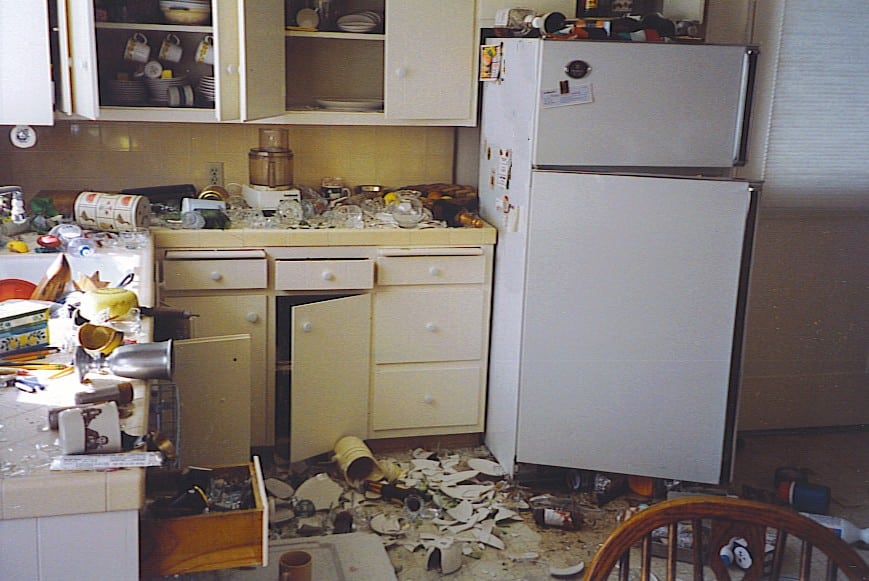
Depending on your location, you may witness different natural disasters. Natural disasters vary from region to region.
Coastal areas are more prone to flooding, fault lines will result in earthquakes, tropics will develop typhoons, and the mid-west United States will witness tornadoes.
It is not uncommon for certain locations to experience a combination of natural disasters, but it is always best to prepare for what could happen.
Natural disasters are unpredictable kitchen cabinet hazards, so you better be ready when they happen.
Earthquakes are natural disasters that can cause heavy damage to one’s home and cause other disasters to occur simultaneously.
Many expect things to fall and collapse when an earthquake occurs. In footage videos from stores, merchandise falls off the shelves, furniture is left displaced, and rooms are shambled.
In one’s kitchen, be weary of where you place certain objects. Of course, nobody displays a bowling bowl like in movies.
Be wary of where you display cups and plates that could fall off shelves. Heavy objects that can fall should be put in bottom cabinets with minimal damage. Heavy objects that are prone to falling can also heavily damage your countertops.
In areas that are prone to earthquakes, open shelving can lead to tragic results, as anything and everything can fall off the shelves depending on the magnitude.
Improper Installation
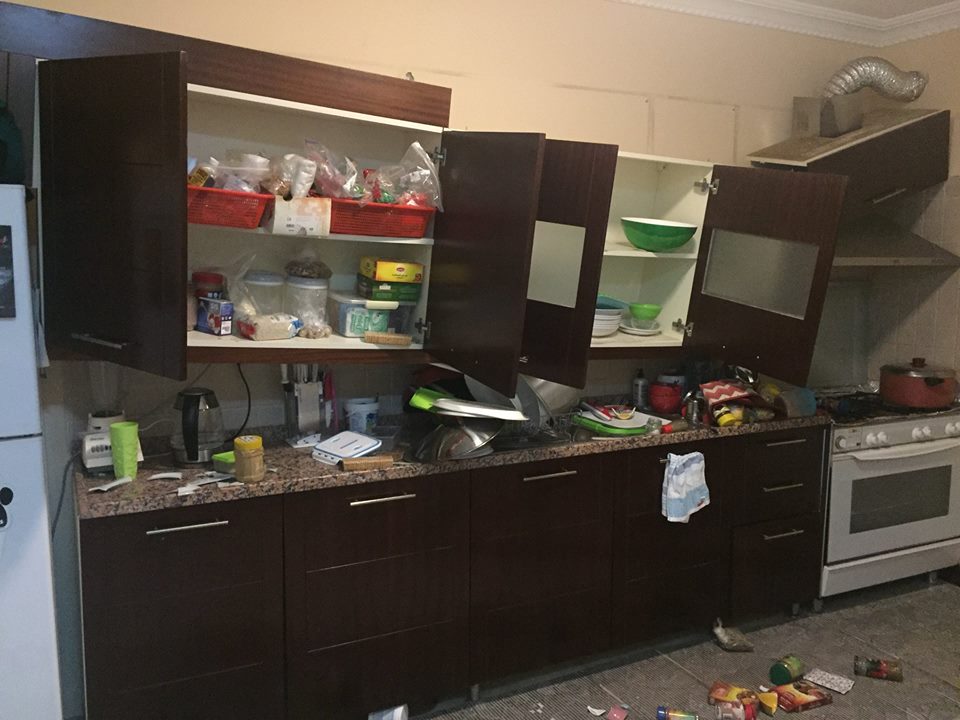
Continuing from earthquakes, it is important to ensure that cabinet installation is done properly and securely.
Nobody wants their wall cabinets or shelves to fall off over time due to an earthquake or bad installation. These cabinets and storage hold precious, fragile dishes and cupware.
Falling cabinets and shelves will easily damage any expensive countertop and even expensive appliances underneath.
It is best to know how frequent disasters can happen in earthquake-prone areas like California. Checking to see whether cabinets are wobbly or if one side is unstable is a sign.
If one is knowledgeable about how to fix them, they can add screws to fasten and tighten the cabinets back to the original spot.
Regular homeowners will be better off seeking professional help to remedy this immediately. It is better to have a contractor out once than have to replace a whole kitchen at the last minute.
Wear and Tear or Overtime Aging
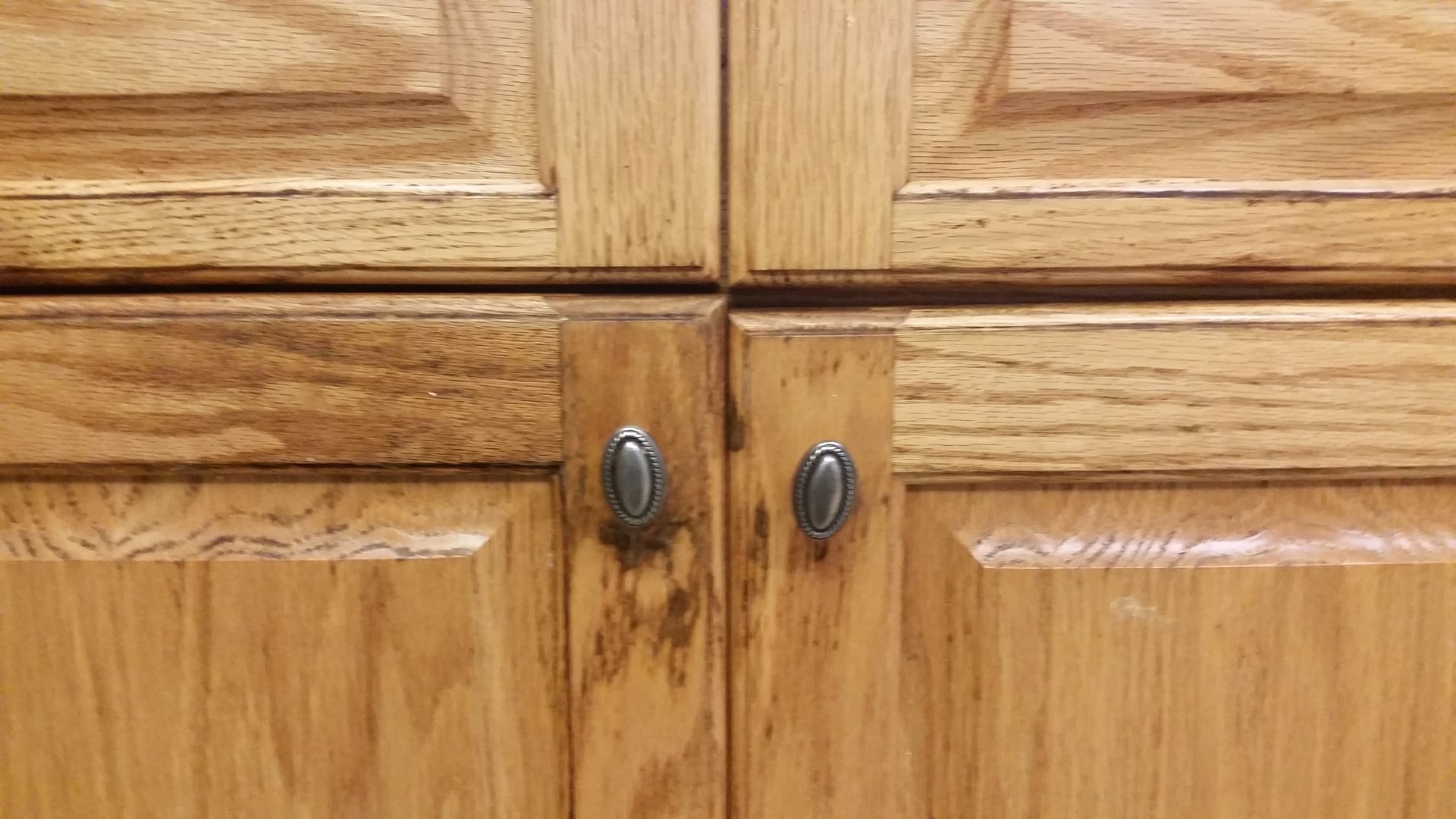
It is always recommended to keep cabinets in top condition. Regular homeowners will clean off stains, oil door hinges, and polish cabinet handles to keep their cabinets in good condition.
Extra work like replacing hinges and drawer slides will improve longevity. The hinges and slides are the backbone of a kitchen and are always used.
However, over time and with much use, they may become less effective in the long term.
The cabinet doors and drawer faces will also take the most beating. Paint chipping and the occasional impact on the fronts will cause the paint to come off, unlike the day they were first installed.
For small knicks and paint chips, a touch-up pen is typically readily available for the cabinets when purchased. Think of it like a pen filled with paint. It can fill in the small paint scuffs that occur over many cabinet uses.
How about large sections of lost paint or actually damaged cabinet doors? If the doors are physically damaged and the paint is insufficient, replacing them may be needed.
Changing door fronts can bring new life to old cabinets that look old on the front and even the tone as well. When considering kitchen cabinet hazards, this may be the last thing, but it will pop up in the long run.

